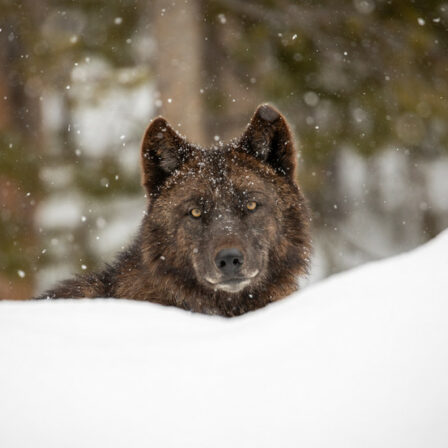Founder and Chair, Ecotrust
Astrid J. Scholz,
President, Ecotrust
“Think of the Northwest, and salmon soon come to mind.” Carl Safina, The Soul Who Swims
Here in the Pacific Northwest, we are blessed with some of the richest, most biodiverse forestlands and marine habitats in the world. These ecosystems have been the backbone of our local communities and economies for generations.[pullquote]Investing in habitat restoration not only delivers long-term social and environmental benefits, but real economic impact, as well[/pullquote]
Two centuries ago, an estimated sixteen million salmon and steelhead were returning to the Columbia River Basin every year, nourishing native peoples, hundreds of other species, and the very forests themselves. Today, catastrophic declines in salmon populations from industrial development have caused over two dozen distinct populations of Pacific salmon to become endangered or threatened. Salmon need healthy ecosystems—from headwaters to blue water—so their listing under the Endangered Species Act has touched the full landscape of the Pacific Northwest.
At Ecotrust, we see urgency in building up an economy that restores nature and invests in people. The critical regulations that the Endangered Species Act put into place have been instrumental in creating an environment where restoration can take root and a more natural model of development can flourish.
Investing in habitat restoration not only delivers long-term social and environmental benefits, but real economic impact, as well. According to recent University of Oregon study, restoration activities create more new jobs than comparable investments in other sectors of our economy. In fact, in Oregon alone, over 6,000 jobs and $900 million in economic output were generated by restoration activities between 2001 and 2010.
And we know that investing in natural capital pays off. Ecotrust Forest Management (EFM), a forestland investment management and advisory company, has acquired over 15,000 acres of forestland with investor capital across the Northwest in order to demonstrate this integrated approach. EFM considers all values inherent in a natural forest ecosystem, and integrates the production of timber with valuable ecosystem services like clean water, carbon storage, and habitat for endangered species like the Northern spotted owl and Marbled Murrelet. Conservation finance tools like carbon offsets, tax credits, and easements are critical components of the strategy, and allow EFM to generate long-term social, financial, and environmental value.
Economic innovations like this that restore nature and create more resilient, long-term value for our communities would not be possible without the Endangered Species Act and its protection of our rich natural heritage and the critical ecosystems we need to live well in the years to come.
Download the entire book A Wild Success here.


